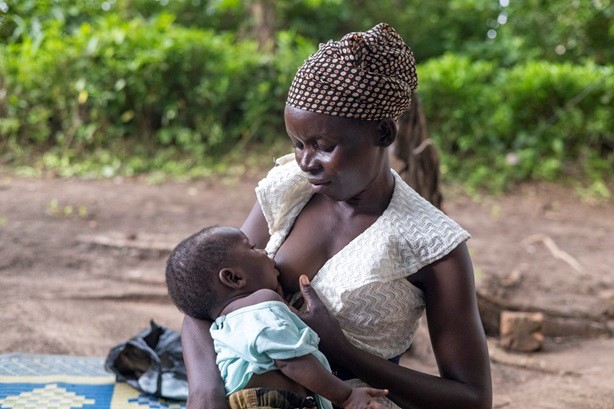By Philip Buda Ladu
As South Sudan joins the globe to commemorate this year’s World Breastfeeding Week (WBW), marked in the first week of August annually, the Children’s Agency (UNICEF) is advocating for the increase of paid maternity leave to 18 weeks to match international standards.
On Thursday, August 1, 2024, the Ministry of Health, UNICEF, and partners held an event to celebrate World Breastfeeding Week and called for breastfeeding support for all by closing the gaps in South Sudan.
Marking the event yesterday, UNICEF South Sudan issued an appeal calling for more actions needed to protect, promote, and support exclusive breastfeeding for children under six months to reach the national target of 80% in 2027.
Hamida Lasseko, UNICEF’s Country Representative in South Sudan, stated that it is important to increase funds to prevent malnutrition in the country.
She emphasized that lactating mothers should receive appropriate breastfeeding breaks, work-site facilities, and breastfeeding support.
“UNICEF calls for improved policies supporting breastfeeding in the workplace, such as increasing the period of paid maternity leave to 18 weeks aligned with global standards,” Lasseko echoed.
She added that making these policies work for mothers worldwide will accelerate progress.
As the world commemorates World Breastfeeding Week from August 1 to 7, the Ministry of Health and UNICEF reiterate their call to all policymakers to address inequalities and ensure that breastfeeding support is available.
According to UNICEF, South Sudan has made commendable progress in the past decade, and levels of exclusive breastfeeding of children under six months have increased from 45% in 2010 to 60% in 2023.
However, more is needed, as four out of every ten newborns remain deprived of their right to a healthy start and miss appropriate first food in the first six months of life.
Breastfeeding is the best way to prevent infant morbidity, mortality, and malnutrition and attain optimal growth and development.
Exclusive breastfeeding up to six months and complementary feeding after six months, along with continued breastfeeding until a child turns two years old, helps build immunity and protects them against common childhood illnesses.
Exclusive breastfeeding is also the most defensive weapon in a mother’s arsenal to protect her child from malnutrition.
Dr. Harriet Pasquel is the undersecretary at the national ministry of health.
She hinted that the universal implementation of the baby-friendly hospital initiative is essential to support early and continued breastfeeding for all babies.
“Besides, working with community members to scale up breastfeeding support focusing on vulnerable populations will help to close the gaps in breastfeeding rates,” Pasquel underscored.
When an infant is exclusively breastfed during the first six months of their life, they receive the most nutrient-rich foods through breast milk, which provides optimum health benefits and ensures their survival and adequate physical growth and cognitive development.
The government and partners reiterated that to reach the 2027 national target of 80% of children exclusively breastfed, the whole of society must address women’s barriers to breastfeeding exclusively.
Therefore, providing enabling workplaces is one crucial factor in that success.
While the Ministry of Health, UNICEF, and their partners work hard to ensure that malnourished children are provided with the necessary therapeutics and feeding centers are set up, more needs to be done to reduce and prevent malnutrition in the first place.
Exclusive breastfeeding of infants for up to six months, coupled with complementary foods until they turn two years of age, will help prevent and mitigate the onset of malnutrition among children in South Sudan.
Early initiation of breastfeeding within the first hour of birth, followed by exclusive breastfeeding during the first six months of life, and continued breastfeeding for two years or more, is the best possible start a child can receive.
Breastfeeding is critical in preventing malnutrition, infant morbidity, and mortality, particularly against common childhood illnesses like diarrhea and pneumonia.




